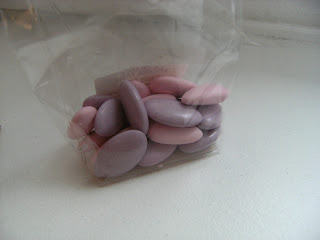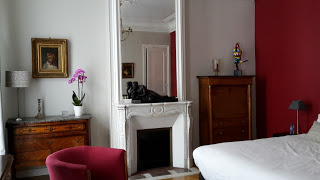Sweets : Dragée
Wednesday, November 09, 2011For some reason, this year has been a year of many weddings, engagements and babies of my friends. I am only 22 years old, and so are most of my friends. It's a bit early, but it's clearly starting for us!
In France, there is a traditional type of sweet gifts for wedding guests, the dragée. Ever since S had told me about them I have been on the lookout. These are sugar coated almonds (or chocolates) that you will see everywhere in France until you actually seek them out and then you can't find them at all. I got mine to try from La Grande Epicerie, the place to go for everything you cannot get elsewhere. It's the grocery store I frequent the second most, where I get most of my breads from.
Apart from weddings, you also can see these at other special events such as baptism and christenings. According to the ever helpful Wikipedia, these are called confetti in Italian, which is where the word for that party favourite comes from!
A dragée is a form of confectionery that can be used for decorative or symbolic purposes in addition to consumption.
A classic, popular version of dragée are whole almonds coated with a sugar shell in various colors. Called mulabbasin Arabic, confetti in Italian and Jordan almonds or sugared almonds in English, these confections have a long history, and are traditionally associated with weddings and special celebrations. Throwing or handing out these candies at such occasions (hence the name for the multi-colored paper confetti which usually now replaces them) dates back centuries, and is meant to ensure prosperity, fertility, happiness, and good luck.









0 comments